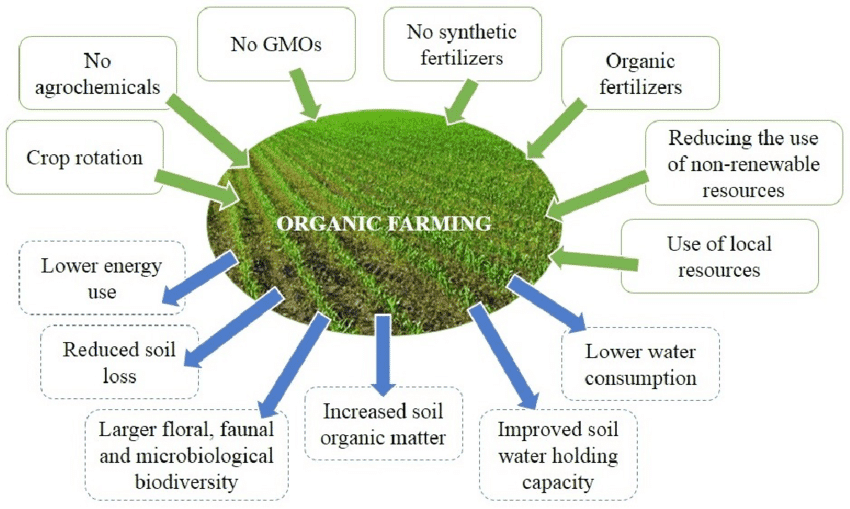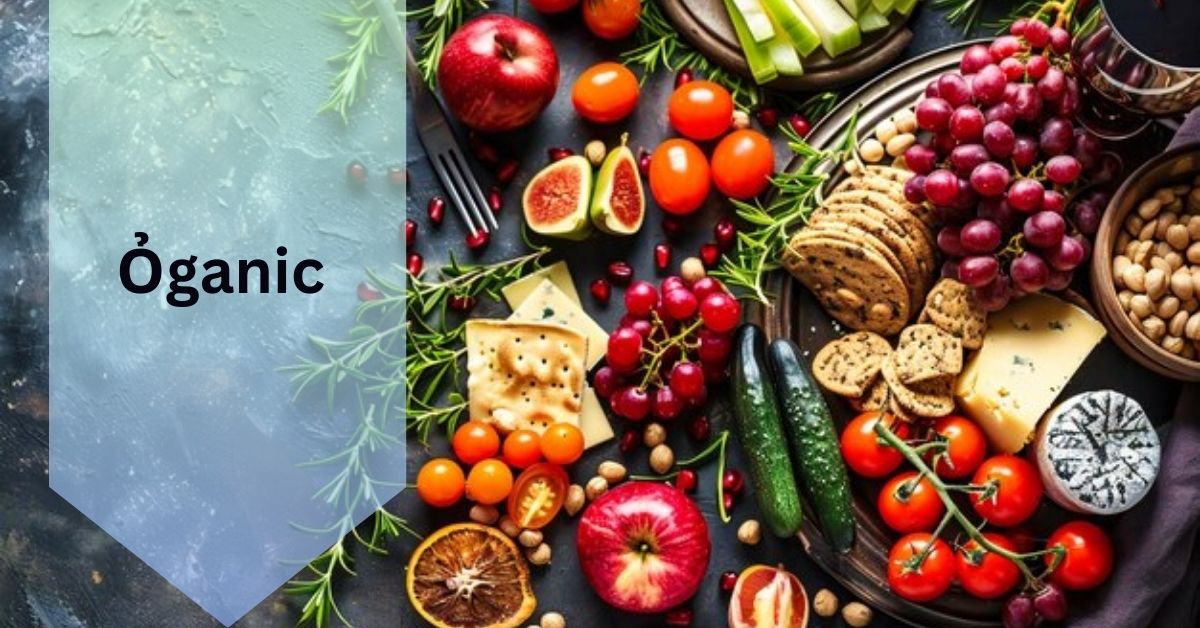Ỏganic – A Journey to Healthier Living!
In today’s world, the quest for healthier living has become more important than ever. With rising concerns over food quality, nutrition, and overall well-being, many people are turning to ỏganicoptions as a solution. This shift towards organic—often stylized as “ỏganic” in various contexts—represents a broader movement towards more mindful and sustainable living.
In this article, we’ll explore what ỏganic means, its benefits, and how transitioning to an ỏganiclifestyle can impact you and your family.
Understanding Organic: What Does ỏganic Really Mean?

Defining Organic
Ỏganic food and products are those grown and produced without the use of synthetic chemicals, pesticides, or genetically modified organisms (GMOs). The ỏganicmovement emphasizes natural processes and sustainability, focusing on environmental stewardship, animal welfare, and consumer health. This approach aims to provide food that is both nutritious and produced in a way that is less harmful to the planet.
The Principles of ỏganicFarming
Ỏganic farming is grounded in several key principles:
- Soil Health: ỏganic farming prioritizes the health of the soil by using natural fertilizers, compost, and crop rotation to maintain soil fertility and structure.
- Biodiversity: Encouraging a diverse range of plants and animals helps to create a balanced ecosystem, which can naturally control pests and diseases.
- Sustainability: ỏganic practices are designed to be sustainable over the long term, reducing environmental impact and conserving resources.
- Animal Welfare: ỏganic farming includes strict guidelines for the treatment of animals, ensuring they have access to outdoor spaces and are fed ỏganicfeed.
Also Read: Logicalshout – Simplify Tasks Quickly!
The Benefits of ỏganicLiving:
Health Benefits
Transitioning to an ỏganic lifestyle offers several potential health benefits:
- Reduced Exposure to Chemicals: ỏganic foods are free from synthetic pesticides and fertilizers, which can reduce your exposure to potentially harmful chemicals.
- Higher Nutritional Value: Some studies suggest that ỏganic produce may have higher levels of certain nutrients and antioxidants compared to conventionally grown foods.
- Improved Digestive Health: ỏganic foods often contain fewer additives and artificial ingredients, which can benefit digestive health and overall well-being.
Environmental Impact
Ỏganic farming has a positive impact on the environment:
- Lower Pollution Levels: By avoiding synthetic chemicals, ỏganic farming reduces water and soil pollution.
- Conservation of Resources: ỏganic practices often use less water and energy compared to conventional farming methods.
- Protection of Wildlife: ỏganic farming supports biodiversity and helps to protect natural habitats from the impact of chemical runoff and monoculture.
Ethical Considerations
For many, the decision to go ỏganicis also driven by ethical considerations:
- Animal Welfare: ỏganic standards include humane treatment of animals, which aligns with the values of many consumers concerned about animal rights.
- Fair Trade: Some ỏganic products are also Fair Trade certified, ensuring that producers are paid fair wages and work under safe conditions.
Making the Transition to Ỏganic:

Transitioning to an ỏganic lifestyle can be both exciting and challenging. Here’s a simple guide to help you make the switch smoothly:
Evaluate Your Current Diet:
Begin by assessing your current eating habits and identifying the foods you consume most often, such as fruits, vegetables, dairy, and meats. Focus on these high-consumption items when starting your switch to organic. If you or your family have specific health concerns, consider consulting a healthcare professional for personalized advice.
Start with Staple Foods:
Begin by incorporating ỏganic versions of the foods you buy most frequently. Common choices include produce, dairy products, and grains. Introducing these items gradually will help you adjust to the new diet and manage costs more effectively.
Shop Smart:
Look for products with official ỏganic certifications, like the USDA ỏganic label, to ensure they meet ỏganicstandards. Consider buying from local farmers’ markets or community-supported agriculture (CSA) programs to get fresh, seasonal ỏganicproduce. Be aware that “natural” on labels does not always mean organic.
Also Read: Glútem – Understanding Its Role and Importance!
Adjust Your Cooking and Meal Planning:
Modify your favorite recipes to use ỏganic ingredients and explore new recipes that highlight ỏganic produce. Planning meals around seasonal ỏganic items will help you make the most of their flavor and nutritional benefits.
Manage Costs:
To save money, purchase ỏganic items in bulk, look for store brands, and keep an eye out for sales. Growing your own herbs and vegetables can also help reduce costs and ensure freshness.
Stay Informed:
Keep up with ỏganic farming practices, new products, and trends to make informed choices. Utilize online resources, community groups, and educational materials to enhance your understanding of ỏganicliving.
Overcoming Challenges and Misconceptions:

Cost Considerations
One common challenge with ỏganic products is their higher cost compared to conventionally grown items. To manage this:
- Budget-Friendly Tips: Buy in bulk, choose store brands, and take advantage of sales and discounts on ỏganic products.
- DIY Solutions: Consider growing your own ỏganic herbs and vegetables at home to reduce costs.
Misconceptions About ỏganicProducts
Several misconceptions about ỏganic products can lead to confusion:
- ỏganicDoesn’t Mean Pesticide-Free: ỏganic farming does use natural pesticides, but they are generally less harmful than synthetic ones.
- ỏganicIs Not Always Synonymous with Healthier: ỏganic foods are not automatically healthier; it’s important to maintain a balanced diet and lifestyle.
Also Read: Realm Scan – Navigating the World of Scanlation!
Availability of ỏganicProducts
While ỏganic options are becoming more widely available, you may still encounter limitations:
- Finding Products: Explore online retailers, local health food stores, and farmer’s markets to find a wider range of ỏganicproducts.
The Future of Ỏganic: Trends and Innovations
The future of ỏganic farming looks promising as more people become aware of its benefits for health and the environment. Advances in technology are making ỏganic farming more efficient, with improved techniques for soil health and pest management. As demand grows, we can expect more innovation in ỏganic products and practices, including better accessibility and affordability.
Additionally, increased support from policies and sustainability initiatives will likely drive further growth, making ỏganicoptions more widely available and integrated into our everyday lives. The continued evolution of ỏganicfarming will help address environmental challenges and promote healthier choices for everyone.
FAQ’s:
1. What does “ỏganic” mean?
“ỏganic” refers to products grown and produced without synthetic chemicals, pesticides, or GMOs. It emphasizes natural processes and sustainability.
2. What are the health benefits of eating organic food?
Organic food can reduce exposure to synthetic chemicals, offer higher nutritional value, and improve digestive health due to fewer additives.
3. How does organic farming benefit the environment?
Organic farming reduces pollution, conserves resources, and protects wildlife by avoiding synthetic chemicals and supporting biodiversity.
4. How can I start transitioning to an organic lifestyle?
Begin by evaluating your current diet, shopping for certified organic products, and cooking with organic ingredients. Consider consulting a healthcare professional for personalized guidance.
5. Are organic products more expensive?
Yes, organic products can be more costly. To manage expenses, buy in bulk, choose store brands, and look for sales. Growing your own organic produce can also help reduce costs.
6. Does organic farming use pesticides?
Organic farming uses natural pesticides, which are generally less harmful than synthetic ones. The goal is to manage pests in a way that is safer for the environment and consumers.
7. Is organic food always healthier?
While organic food is free from synthetic additives, it is not automatically healthier. A balanced diet and lifestyle are essential for overall health.
8. Where can I buy organic products?
Organic products are available at health food stores, farmer’s markets, and online retailers. Look for products with certified organic labels.
Conclusion:
Embracing ỏganic living represents more than just a dietary choice—it’s a commitment to healthier living, environmental sustainability, and ethical practices. While the transition may present challenges, the benefits of ỏganicliving are numerous and impactful. By making informed choices and adapting to an ỏganic lifestyle, you can contribute to a healthier planet and enjoy a higher quality of life.
Read More:


![[noblocc] kicked for being afk](https://relictimes.com/wp-content/uploads/2024/11/image-ezgif.com-webp-to-jpg-converter-2024-11-20T140233.477-1.jpg)


![[noblocc] kicked for being afk](https://relictimes.com/wp-content/uploads/2024/11/image-ezgif.com-webp-to-jpg-converter-2024-11-20T140233.477-1-300x200.jpg)








Post Comment